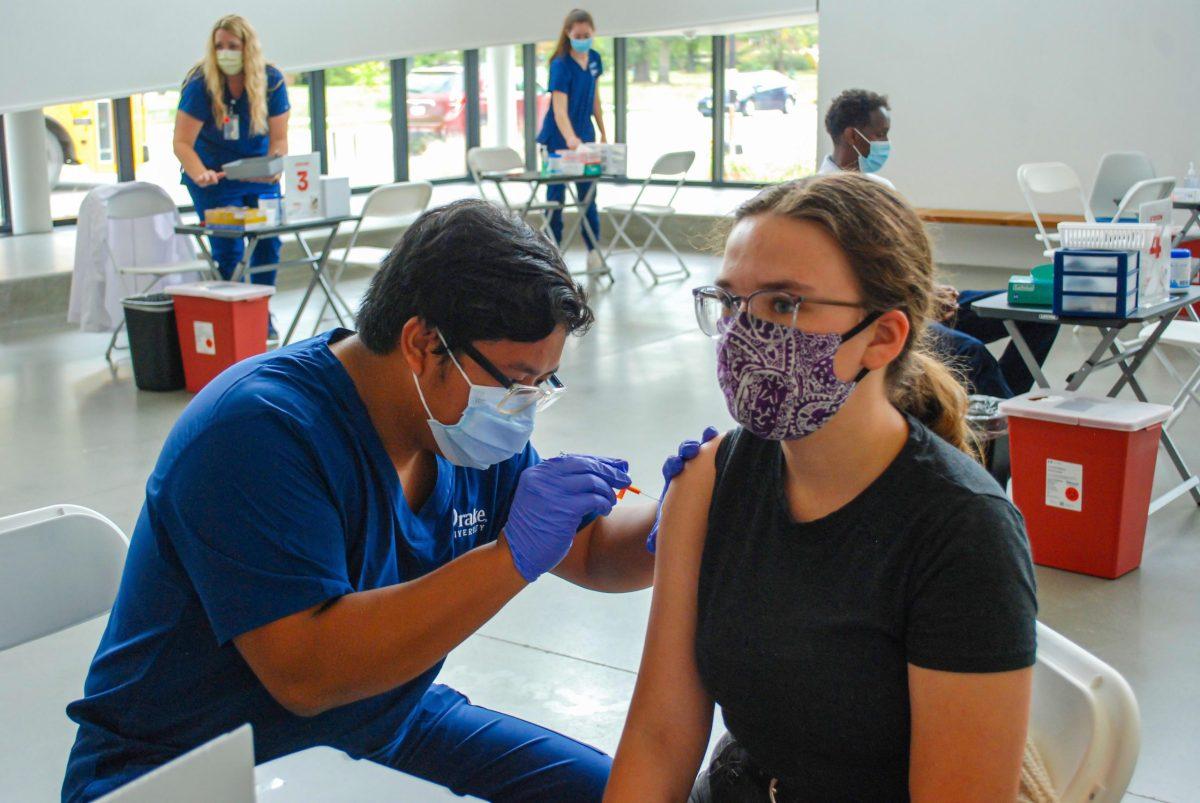Misconceptions and misinformation about the science of vaccines have contributed to controversy about COVID-19 vaccines over the past year.
The expertise of a few Drake University faculty members may help clear up some of these misconceptions. Two Drake faculty members, Marc Busch and Brian Gentry, are virologists. Provost Sue Mattison, who oversees all seven of Drake’s colleges, also happens to be an epidemiologist.
“Vaccines train your immune system so that the immune system responds rapidly to infection of the same agent,” Busch said.
According to Busch, the biggest misconception about vaccines is that they prevent infections. However, Busch notes that the inability to prevent infection does not translate into vaccines being useless.
“That’s not what they do. They limit the amount of replication of the pathogen, thus preventing or limiting disease,” Busch said. “The outcome is less severe disease. Those that did get the disease and were unvaccinated had much more severe disease than those who got the disease and were vaccinated. The severity of the disease is lessened by being vaccinated.”
Another common concern regarding the vaccine is the side effects that some individuals experience. However, Busch said this is not a cause for concern.
“The other misconception is that vaccines make you sick,” Busch said. “This is typically associated with fevers and muscle aches, but that’s just your immune system working.”
Gentry said that people have different reasons for refusing the COVID-19 vaccine, but misinformation is in large part to blame.
“Even to this day you have people that equate having a vaccine with an increased risk of a child getting autism,” Gentry said.
Other concerns arise over whether someone falls into a category that could potentially be seriously hurt by the vaccine. Gentry said that it is possible to be hurt by the vaccine, but only in rare instances.
“I have a friend who is allergic to ingredients that have been in other vaccines and so he is waiting, and I think rightly so,” Gentry said. “You can do an allergy screening for vaccines, but if you’re up to date on vaccines, you have nothing to worry about.”
According to Mattison, vaccination rates directly affect the Drake community because the administration takes them into account when making decisions about COVID-19 protocols.
“We’re at about an 80% vaccination rate and 175 unvaccinated students right now,” Mattison said. “[Lifting restrictions] would depend a lot on what’s happening around us and the number of cases that we see. Unvaccinated individuals are more likely to transmit and cause breakthrough cases.”
According to Mattison, the vaccination rate does not need to hit the 100% mark to achieve herd immunity. However, according to both the administration and scientists, getting vaccinated allows for the possibility that masks could be put away if the pandemic doesn’t worsen.
“It really is a matter of numbers. If students want to go to class without masks, we need the vaccination numbers to go up,” Gentry said. “Submitting the vaccination card is important because as far as the university and provost are concerned, you are not vaccinated unless you have submitted that card. Get the number above 90% and you could make the argument that masks are no longer necessary.”
Categories:
Biology and public health professors discuss vaccines and misinformation
Oct 6, 2021
0
Donate to The Times-Delphic
$840
$1000
Contributed
Our Goal
Your donation will support the student journalists of Drake University. Your contribution will allow us to maintain the website and keep our publication going.
More to Discover







